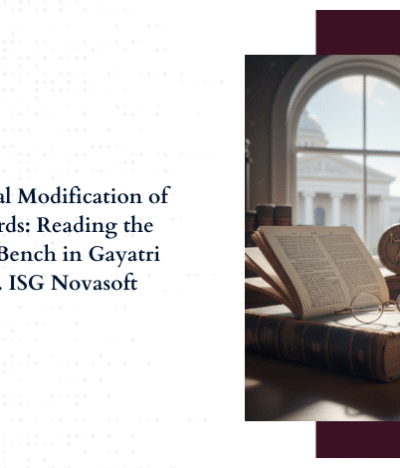How can a mother-in-law transfer property to a son-in-law in India? In India, the transfer of property from a mother-in-law to her son-in-law requires careful legal consideration and adherence to established procedures. Property transfer from mother-in-law to son-in-law is often governed by various laws, including the Transfer of Property Act, 1882, and the Hindu Succession Act, 1956, depending on the family’s religious background and the specific nature of the property involved. This type of transfer can occur through several mechanisms such as a gift deed, sale deed or will, each requiring specific legal formalities to ensure the transfer is valid and enforceable.
The process of property transfer from mother-in-law to son-in-law involves multiple steps, including the execution of a legally binding document, payment of requisite stamp duties and registration of the property transfer with the local sub-registrar’s office. Ensuring that all legal requirements are met is essential to safeguard the interests of both the mother-in-law and the son-in-law.
How to Transfer Property from Mother-in-Law to Son-in-Law in India
In India, the process of property transfer from mother-in-law to son-in-law involves several legal steps to ensure the transaction is valid and binding. Property transfer from mother-in-law to son-in-law can be executed through various means. Each method of property transfer from mother-in-law to son-in-law requires compliance with specific legal formalities. This helps in navigating the complexities of the legal system and securing the interests of both parties involved in the property transfer from mother-in-law to son-in-law.
1. Transfer Through Gift Deed
A transfer through a Gift Deed involves the mother-in-law voluntarily transferring ownership of the property to the son-in-law without any monetary consideration.
1.1. Drafting the Gift Deed
The mother-in-law must draft a gift deed that explicitly states her intention to gift the property to her son-in-law. This document should detail the property being transferred and any conditions attached to the gift.
1.2. Acceptance by the Donee
The son-in-law must accept the gift while the mother-in-law is alive for the transfer to be valid.
1.3. Stamp Duty and Registration
The stamp duty must be paid at the prescribed rate, which varies by state and the property’s value. For instance, in Delhi, the stamp duty and transfer duty for property transfers to male donees are levied at 6% of the circle rate. In Himachal Pradesh, the stamp duty for properties gifted is at a 4% rate.
The gift deed must be registered with the Sub-Registrar in the jurisdiction where the property is located. Both the mother-in-law and the son-in-law, along with witnesses, must be present for the registration.
1.4. Documents Required
- Drafted Gift Deed
- Proof of Identity
- Property Documents
- Encumbrance Certificate
- No Objection Certificate (if applicable)
- Proof of Payment of Stamp Duty
2. Transfer Through Sale Deed
Transferring property through a Sale Deed involves a formal sale transaction, where the mother-in-law sells the property to the son-in-law in exchange for an agreed-upon amount.
2.1 Agreement to Sell
Prior to drafting the sale deed, the mother-in-law and son-in-law must reach an agreement on the sale price, property specifics and any other terms related to the transfer. This agreement lays the foundation for the subsequent property transfer.
2.2 Drafting the Sale Deed
The sale deed is a document that specifies the terms and conditions of the property transfer, including the sale price, a detailed description of the property and information about both parties. The buyer (son-in-law) is required to pay the agreed sale amount to the seller (mother-in-law).
2.3 Execution of Sale Deed
After the sale deed is drafted, it must be executed by both the seller (mother-in-law) and the buyer (son-in-law). Both parties need to sign the sale deed in the presence of at least two witnesses.
2.4 Stamp Duty and Registration
Stamp duty must be paid on the sale deed as per the prevailing rates in the state where the property is situated. Following the payment of stamp duty, the sale deed must be registered at the local Sub-Registrar’s office. The presence of both the seller (mother-in-law) and the buyer (son-in-law), along with two witnesses, is mandatory for the registration process.
2.5 Mutation of Property
After registration, the buyer (son-in-law) should apply for the mutation of the property in his name at the local municipal office or revenue department. This process updates the land records to reflect the change in ownership.
3. Transfer Through Will
Transferring property through a Will involves the testamentary transfer of property, where the mother-in-law specifies that the property will pass to the son-in-law upon her demise.
3.1. Drafting the Will
The mother-in-law must draft a will that clearly expresses her intention to transfer the property to her son-in-law after her death. The will should include detailed information about the property, any conditions of the transfer, and the rights of the son-in-law. The will needs to be signed by the mother-in-law in the presence of at least two witnesses who are not beneficiaries under the will. Although not mandatory, registering the will is advisable to prevent future disputes.
3.2. Declaration of Title Suit
This aims to validate the son-in-law’s claim to the property as outlined in the will, ensuring that he is recognized as the rightful owner. The process involves presenting the will as evidence of the mother-in-law’s intention to transfer the property to her son-in-law and addressing any challenges or disputes regarding the inheritance. Once the court issues a declaration affirming the son-in-law’s title to the property, it confirms his legal ownership and protects his rights against conflicting claims.
3.3. Probate (Optional)
After the mother-in-law’s demise, the son-in-law may apply for probate of the will in court. Probate is a legal process that establishes the validity of the will. However, probate is not mandatory in all states of India and may depend on local laws.
3.4. Mutation of Property
Mutation of the property involves updating the land records at the local municipal office to reflect the son-in-law’s ownership after the mother-in-law’s demise.
Common Challenges of Transferring Property from Mother-in-Law to Son-in-Law
Transferring property from a mother-in-law to a son-in-law in India can present a variety of challenges such as:
Legal Requirements
This challenge involves navigating the various legal steps necessary for the property transfer, such as drafting legal documents like wills, sale deeds or gift deeds, paying stamp duty, and completing registration. Each step must adhere to the specific legal requirements of the jurisdiction where the property is situated. Inadequate compliance with these formalities can result in delays in the transfer process.
Family Conflicts
Family conflicts may arise from unfairness in the property distribution, different expectations among family members or existing familial tensions. Such disputes can escalate into legal battles, causing prolonged delays and emotional stress for the family. Resolving these conflicts often requires open communication and empathy, and in some cases, professional mediation or legal intervention.
Rights of Legal Heirs
In India, certain legal heirs, such as spouses, children, and other dependents, may have statutory rights to inherit property from a deceased individual, regardless of the provisions in a will or deed. If the property transfer affects the rights of legal heirs, they may challenge the transfer in court, seeking their rightful share of the inheritance.
Capacity and Consent
Ensuring that both the mother-in-law and the son-in-law have the legal capacity to enter into the property transfer is essential. Capacity refers to the mental ability to understand the implications of the transfer and consent to it voluntarily. If either party lacks the capacity to consent (due to reasons such as mental incapacity or coercion), the transfer may be invalid.
Conclusion
Transferring property from a mother-in-law to a son-in-law in India involves navigating a complex legal landscape to ensure the transaction is valid and enforceable. Whether through a gift deed, sale deed, or will, each method requires adherence to specific legal formalities, including the execution of binding documents, payment of stamp duties, and registration with the local sub-registrar’s office. Challenges such as legal requirements, family conflicts, rights of legal heirs, and ensuring capacity and consent must be carefully managed to protect the interests of both parties.
Ensure Your Family’s Future Today
Navigating property transfers within families requires meticulous legal guidance to ensure the process is both valid and seamless. ACM Legal specializes in handling these matters with the utmost precision and care, providing expertise that is crucial in managing the complexities and emotional dynamics often involved in family property transfers. Our understanding of property laws and commitment to personalized service make us a trusted partner in facilitating secure and smooth ownership transitions.
FAQs
1. How to transfer property from a mother-in-law to a son-in-law in India?
The property can be transferred from a mother-in-law to a son-in-law through a gift deed, sale deed or will. Each method requires compliance with specific legal formalities, including drafting the appropriate documents, paying stamp duty and registering the transfer with the relevant authorities.
2. What are the conditions under which a mother-in-law can legally transfer property to her son-in-law in India?
A mother-in-law can legally transfer property to her son-in-law provided the transfer is voluntary, without coercion or fraud, and complies with applicable legal formalities. Both parties must consent to the transfer, and the transfer should be documented, stamped and registered as per legal requirements.
3. What documents are essential for transferring property from a mother-in-law to a son-in-law?
Essential documents for transferring property from a mother-in-law to a son-in-law typically include:
- Gift Deed, Sale Deed or Will
- Proof of Identity
- Property Documents
- Encumbrance Certificate
- No Objection Certificate (if applicable)
- Proof of Payment of Stamp Duty
4. How long does the property transfer process take from a mother-in-law to a son-in-law?
The duration of the property transfer process can vary depending on the method chosen (gift deed, sale deed or will), the efficiency of local administrative processes, and any potential legal or procedural complications. Generally, the process can take anywhere from a few weeks to several months.
5. Can a mother-in-law revoke the transfer of property after it has been completed?
Once the transfer of property is completed, it generally cannot be revoked by the mother-in-law. It is considered irrevocable once executed and registered unless it can be proven in court that the transfer was made under coercion, fraud or undue influence.






